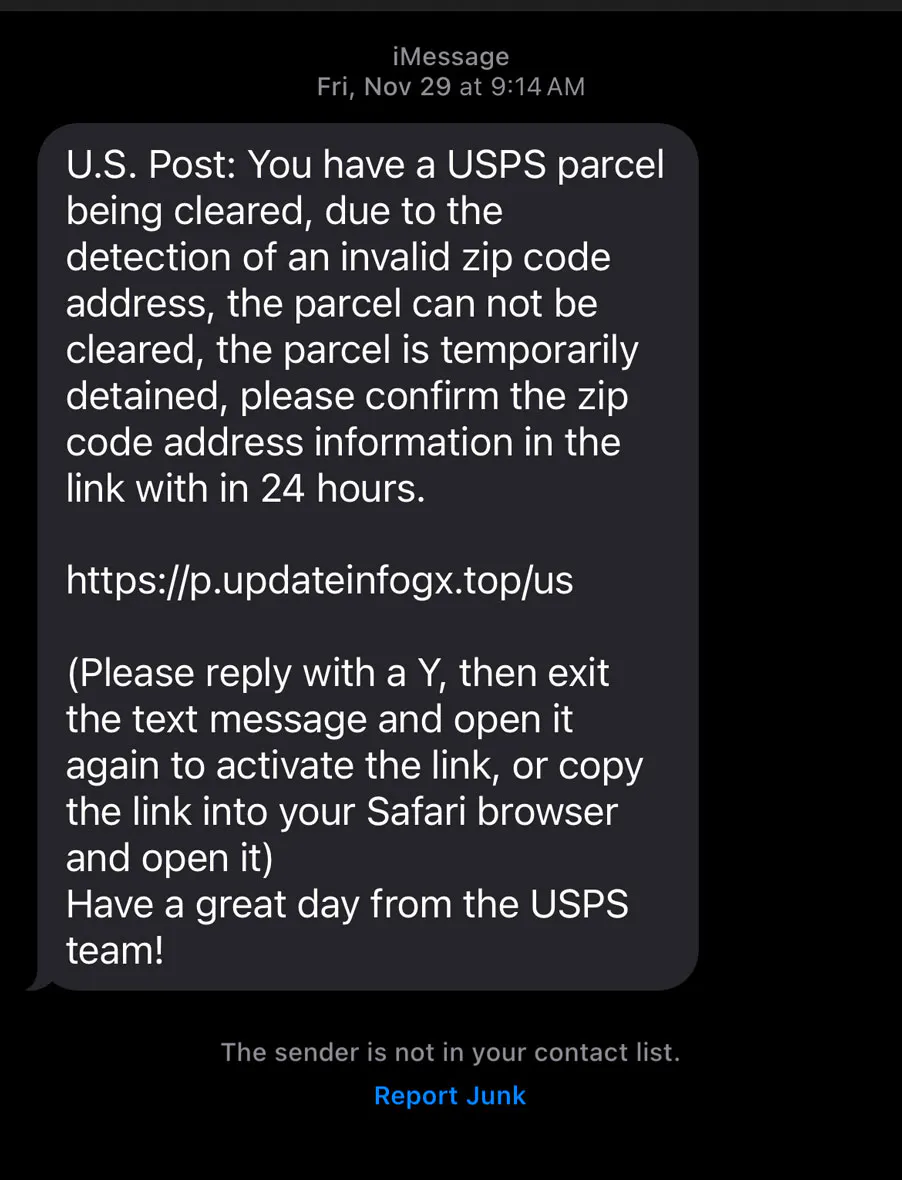How To Protect Yourself From USPS Smishing Scams This Holiday Season
As holiday package deliveries increase, scammers are using "smishing" text messages to impersonate USPS and trick people into revealing personal or financial information.Wednesday, December 11th 2024, 5:44 am
As the holiday season approaches, scammers are becoming more active, preying on people expecting packages. One of the most common scams is called "smishing." These messages can be persuasive during the busy holiday season when many people expect gifts and packages.
 This is an example of a message that could appear credible, but it's not.
This is an example of a message that could appear credible, but it's not.
Q: What is smishing, and how does it relate to the United States Postal Service?
A: Smishing is a form of phishing that uses text messages to trick people into revealing personal or financial information. Scammers often impersonate trusted organizations like the United States Postal Service (USPS) to make their messages seem legitimate. These fraudulent messages typically claim that there is an issue with package delivery, prompting recipients to click on suspicious links or provide sensitive information.
Q: How can I tell if a message is a smishing scam?
A: A key indicator of a smishing scam is an unsolicited message containing a strange or unfamiliar web link, especially if you haven’t signed up for USPS package tracking. Legitimate USPS text messages or emails will not contain links. USPS will only send you tracking updates if you have requested them, such as by providing a tracking number. If you didn’t initiate the request, don’t click on any links.
Q: What information are scammers trying to steal through smishing?
A: Scammers aim to steal personal information like usernames, passwords, Social Security numbers, birth dates, credit card numbers, and PINs. This information is used for financial fraud or identity theft.
Q: How does the USPS send tracking information, and how can I track a package safely?
A: USPS offers free tracking services, but to use them, customers must either register online or initiate a tracking request via text by providing a tracking number. USPS will never send unsolicited text messages or emails with links. To track your package, always visit the official USPS website or use their authorized mobile tools.
Q: What should I do if I receive a suspicious text message that claims to be from USPS?
A: If you receive a text message that seems suspicious, do not click on any links. Instead, visit the USPS website directly (either from your phone or computer) to track your package. If you believe the message is a scam, you can report it.
Q: How can I report a USPS smishing scam?
A: To report a suspicious text message, email spam@uspis.gov. When reporting, include the following details:
- A copy of the message or a screenshot showing the sender's phone number and the date the message was sent.
- Any relevant information, such as whether you clicked the link, lost money, or provided personal information. Additionally, you can forward the message to 7726, which helps report the scam phone number.
Q: What are some other tips for protecting myself from smishing scams?
- Never respond to unsolicited text messages or emails asking for personal or financial information.
- Be cautious of messages that pressure you to act quickly or claim urgent action is needed.
- Use strong, unique passwords for online accounts, and enable two-factor authentication when available.
- Regularly monitor your bank statements and credit report for unusual activity.
For more information about how the USPS is working to warn people about this popular scam, visit USPIS.gov/Holiday-Scams-2024.
More Like This
December 11th, 2024
December 22nd, 2024
December 22nd, 2024
Top Headlines
December 22nd, 2024
December 22nd, 2024
December 22nd, 2024






